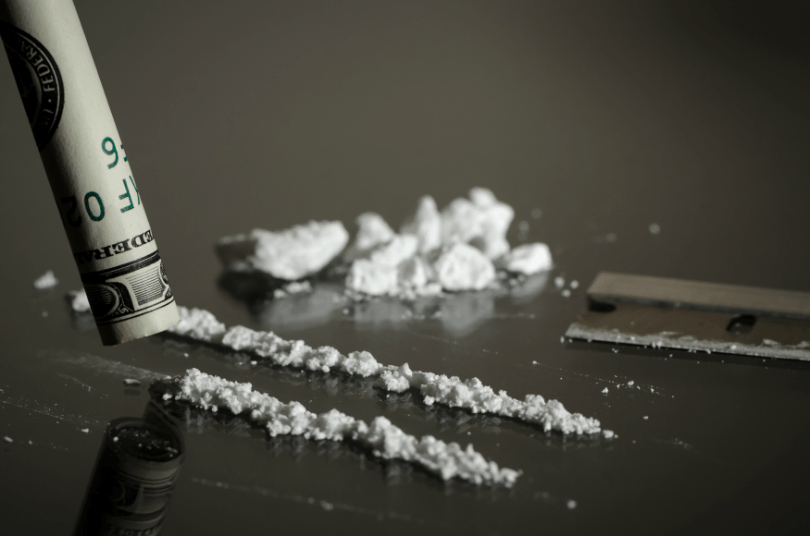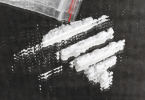If we think of cocaine as a friend or lover, and most addicts do, we can imagine the withdrawal in more common terms. Any kind of intimate relationship, when it ends, changes our whole life.
Sleep eludes us. Our minds can become obsessed with seeing the person “just one more time”. And, our minds and bodies feel in a constant state of weariness. It’s exhausting.
Time heals us. But, understanding cocaine addiction and withdrawal is partly understanding how, we as humans, manage this severe change physically, mentally, and socially.
And of course, there is always the hope of feeling normal once again.
A Hostage to Your Body
Studies of cocaine withdrawal indicate the time it takes for the drug to be completely expelled from the body is relatively short.
In fact, the half-life (the time it takes for half the drug to be expelled) is less than two hours from the time of ingestion.
So, for habitual users, withdrawal begins as early as 90 minutes from usage. This can help us understand the highly addictive properties of cocaine.
Users must continue snorting or smoking (crack) every hour and a half at to maintain the “high”. And, more is needed as tolerance increases.
When a user then stops completely, the physical need for the drug starts quickly. The intense craving at this point is both physical and mental.
Just as no two people or relationships are the same, there is no “general rule” on how long or how severely the change will affect each person. However, self-reporting indicates severe cravings long outlast physical symptoms, up to several weeks.
Also, cocaine is known to inhibit normal appetite and users frequently skip meals. Once the drug is no longer in the system, their appetite returns, and sometimes with a vengeance.
Those withdrawing report eating large portions, binging on favorite foods, and feeling hungry most of the time.
In addition, cocaine works much like amphetamines. It keeps users awake throughout normal sleeping hours. Some report staying up for days at a time while using.
Therefore, REM sleep and Circadian rhythms are seriously disrupted. Unfortunately, studies are showing this disruption can last for months after withdrawal, and may even be permanent.
What Does Happy Feel Like?
Because Cocaine is a Central Nervous System Stimulant (CNS), users tend to stay in a hyper, euphoric state as long as they continue using.
Over weeks, months, or years, the drug abuser’s brain (neurotransmitters) maintains a constant, high level of pleasure-inducing chemicals. (nor-epinephrine, dopamine)
Likewise, we all feel pleasure in being loved and returning the strong emotion. When the source of the pleasure is gone, we can become very depressed.
Certainly, this is very normal. And, depending on the length of the relationship with a person or this “pleasure drug”, this depression can consume us for a long time. We can feel helpless about it.
As strong cravings continue, cocaine withdrawal brings sleeplessness, irritability, lack of focus, and sometimes even paranoia and suicidal tendencies.
Cocaine use over time “wires” the brain to feel alert and happy. So, those who are working to overcome addiction are no longer able to achieve happiness through normal activity.
Users must go through long-term rehab to retrain this impaired brain function.
This can become a spiral of both hopelessness and helplessness. Stress and anxiety can take over, even causing very vivid, terrorizing dreams.
Indeed, it’s no surprise that attempting to cocaine withdrawal without strong support is rarely successful.
The crucial stages after the physical withdrawal need to be supervised by experienced professionals who know well the seriousness of diminished cognitive functions.
And, have well-researched steps to help addicts get through this very trying time.
No One Is Around Anymore
As anyone might imagine, addiction influences with whom the user communicates and socializes. Just as our close relationships do. When the influence is gone, former social circles disintegrate.
Feeling lonely and isolated is normal in the beginning as new and different relationships must now be found.
Humans are very social animals. And, our brain is wired for behavior which is rewarded. A brain which has been chemically induced to continuously seek reward (cocaine) cannot differentiate normal from socially “abnormal” behavior.
This is why many addicts act in ways which confound those who know them best.
It makes sense then, to attend to the social needs of those seeking treatment for cocaine addiction. We are naturally most influenced by our family, friends, and coworkers.
And, those seeking treatment may well have disjointed those strong influences with past drug-seeking behavior.
Many have become unemployed, have alienated family, and aligned themselves with others who display like behavior. Suddenly, they are all alone.
And, those closest to the drug user can feel angry, frustrated, and lack understanding of addiction in general. Indeed, dealing with addiction is well above most people’s pay grade.
This is precisely the reason professionals take stock of each individual’s social network and assess the hope of repairing those relationships.
The addict faces a lifetime of dealing with their affliction and social support is crucial in fending off relapse.
There’s Hope After Cocaine Withdrawal
As with any severe change in our lives, there is always the hope of returning to stability. For addicts, there are armies of professionals to help throughout the entire process.
Because the process can take months, it is critical to rely on those professionals. Recovery experts assess physical and emotional needs from the very beginning and know the steps to getting healthy again.
As much as we can feel all alone when seeking treatment, we surely are not. Estimates in the US alone show 1 in 7 people will face some kind of addiction in their lifetime. Fortunately, there are plenty of options for help.
We know the first step can be the most difficult. But, that’s why we’re here, contact us at (877) 322-2450 so we can help. We know what it’s like when someone needs help.
















